SEX AND SOCIETY
SUMMARY
This article explores the impact on our sexual relations of society and culture – not only some of the changes through history but also the hidden influence of our prehistoric ancestors. Finally I reflect on what the Church could or should be saying.
SOCIETY
RADICAL VIEWS ON MARRIAGE

In 1848 Karl Marx and Frederick Engels published a small explosive book called ‘The Communist Manifesto.’ It was a stringent attack on the bourgeois society of the time. The key concept was that the way that different societies functioned was entirely dependent on their economic and technological foundations. “In one word, man’s (it was 1848), consciousness changes with every change of his material existence, in his social relations and in his social life.” (p. 51) The family is not spared.
“On what foundations is the present family, the bourgeois family, based? On capital, upon private gain… (We find) its complement in the practical absence of family among the proletariat, and in public prostitution…”. (p.28)
Political anarchism developed at the same time, promoted specially by Pierre-Joseph Proudhon (1809-1865) and Mikhail Bakunin (1814-1876). They advocated the replacement of the state with stateless societies and voluntary free associations. In the early twentieth century a key concept was free love, with new the emphasis on polyamory, relationship anarchy and queer anarchism.
A CHANGING SOCIETY
Marx was right when he linked social relations to economic and technological forces. We have been in the middle of just such a revolution for three hundred years.
In 1700 most production took place in the home. In Coventry you can see the large windows on the first floor of working class homes, to allow families to make ribbons for sale to middlemen. The factory system from 1800 enabled much higher and cheaper rates of production, creating a new proletarian class who worked very long hours outside the home, which included women and children. The Factory Acts of 1833, 1844 and 1847 eventually enforced a ten hour day for all workers in 1847.
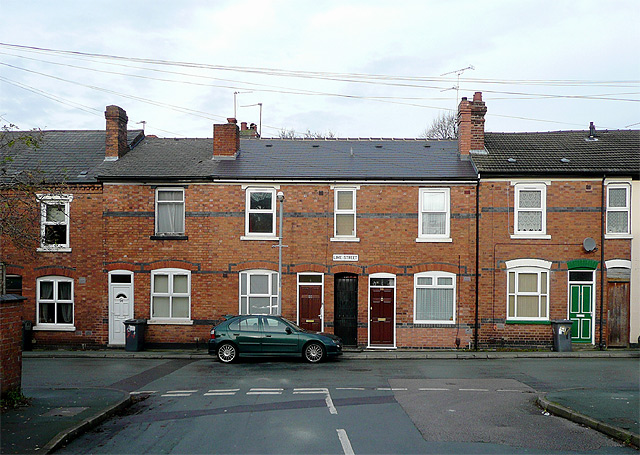
Families were large. A charming two bedroom terraced cottage which today houses a couple and maybe one child, when built would have had housed a family of seven or eight. A standard approving comment about one’s husband at that time was, “at least he’s a good provider.” Unimaginable today.
The home was still central to daily living. In the parish of Hackbridge and Beddington Corner in Surrey, a working man could not survive on his own. If his wife died, her place was immediately taken by her sister or other family relation. There were no white goods (washing machine etc.), and all food had to be prepared from scratch. Then with the abolition of Retail Price Maintenance in 1964, small family shops gave way to large superstores, which increasingly provided all household needs. We now rely on industrial capitalism for everything, even having breakfast ordered online.
Whereas the home in 1700 had been a joint enterprise of both production and consumption, by 1970, its only remaining function was the raising of children. Since men and women are equally competent in most employment tasks, there was no bar, once the Employment Protection Act 1975 was passed, for women to compete equally in the marketplace.
We could call it the de-sexing and monetising of society. Who are the beneficiaries? Clearly women in the developed world. But also, because of a larger pool of possible employees, company shareholders.
Marriage is declining but still a goal for many. In 2018 50.5% of UK adults were married, and a further 13% cohabiting. In the US only 45% of adults were married. 40% of babies are born out of wedlock in the UK. This rises to 62% in France and 75% in Chile. About a third of marriages end in divorce.
CHANGING MEDICAL TECHNOLOGIES

Three monumental medical developments overturned millennia of human sexual history.
1 The Pill. The introduction of the first birth control pill in 1960 broke the implicit link between sex and conception. In the 1970’s the morning-after pill was developed.
2 IVF or in vitro fertilisation (test tube baby). The first successful birth following IVF treatment was of Louise Brown in 1978. It is used by couples wishing to conceive but have been unable to. It is also used by lesbian couples.
3 Surrogacy. Surrogacy is where a woman lends her womb to a couple, straight or gay, who want to have a child but cannot. Major tech companies in California, offer employees half the cost of surrogate fees so their careers are not impacted.
CHANGING LAWS
1. Divorce. Prior to 1867 the only way to get divorced in England and Wales was by annulment in the Ecclesiastical Courts or by a private members bill in Parliament, both forbiddingly expensive. In the 1930’s the grounds for divorce were broadened to include adultery by either party, and to cruelty, desertion and insanity. In 2020 the only cause was if either party maintained that the marriage had irretrievably broken down.
2. Homosexuality. For 2,000 years the Church preached that homosexuality was immoral, but it was not illegal until 1533 when Parliament passed the Buggery Act. Homosexuality was only decriminalised in 1967 by the Sexual Offences Act, with the strong support of Michael Ramsey, Archbishop of Canterbury. Since 2000 LGBT rights have been increasingly strengthened. In 2005 same-sex couples were able to enter into civil partnerships with the right to adopt children. Same-sex marriage was legalised in 2014. In a 2019 poll, 86% of the UK agreed that homosexuality should be accepted by society.
SEX
A LONG STORY
Sex has been around a very long time. Some two billion years ago simple organisms started reproducing through amalgamation with differing DNAs instead of simply through cloning. Around 500 million years ago early Cambrian fish engaged in external fertilisation – male fish sent sperm into a cloudy mass of ova. Around 235 million years our ancient, rather tiny, ancestors developed breasts/mammaries with which to feed their young – hence ‘mammal’. Between 125 and 60 million years ago, mammalian external penises made their appearance along with clitorises. Since then external stimulation for self-pleasure has characterised many species, from lions to porcupines. About 10 million years ago mammals started giving live birth, which necessitated a much longer period of caring and protecting the young. Paternal care was born.
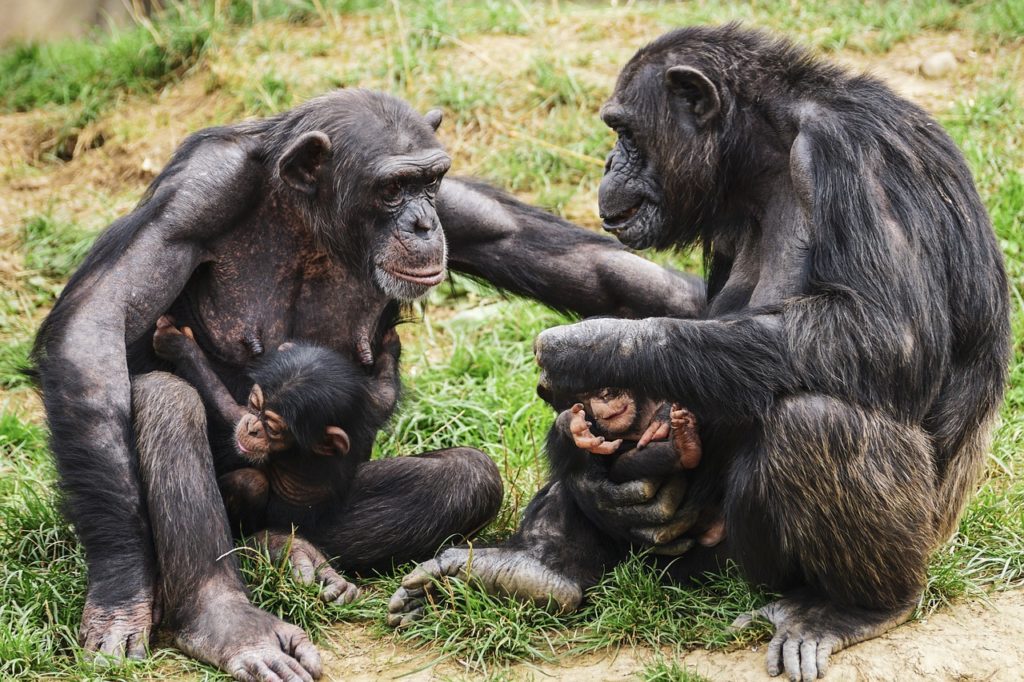
Our closest relatives in terms of DNA are the primates, i.e. gorillas, orang-utans, bonobo monkeys and chimpanzees, with similar DNAs of between 96 and 98.7%. But there is very wide differences in sexual structures and practices. ‘New World’ monkeys, such as titi monkeys are monogamous. ‘Old World’ monkeys such as baboons and chimpanzees have sex with as many females that they can, with or without consent. It is the main marker of social dominance in the group. Practices include polygyny, polyandry, polygamy (multiple women, multiple men, multiple anyone) with sexual violence thrown in. Infanticide by dominant males is all too common. Definitely not the garden of Eden.
THE BEGINNING OF LOVE

Finally, along come Adam and Eve, or more prosaically Homo Erectus, 1.9 million years ago. At last a primate/human species that not merely walks around on two legs, but practises monogamy! And invents fatherhood. The new savannah-dweller offspring, with bigger brains, needed parents to look after it for years. Feelings of security and dependence grew into love, encouraged by sexual consummation, which probably started to take fifteen minutes, a far cry from the seven seconds for our chimpanzee cousins. Millennia of poetry bear witness to our human devotion to love. As the ‘Song of Songs 1.14-15 has it:
She My beloved is to me a cluster of henna blossoms
in the vineyards of En-gedi.
He Ah, you are beautiful, my love;
ah, you are beautiful;
your eyes are doves.
LOVE ON THE FARM
About 12,000 years ago humans changed from being hunter-gatherers living in small kinship groups to agricultural workers. The steady availability of food brought about a large increase in of population, the creation of villages and eventually small city states.
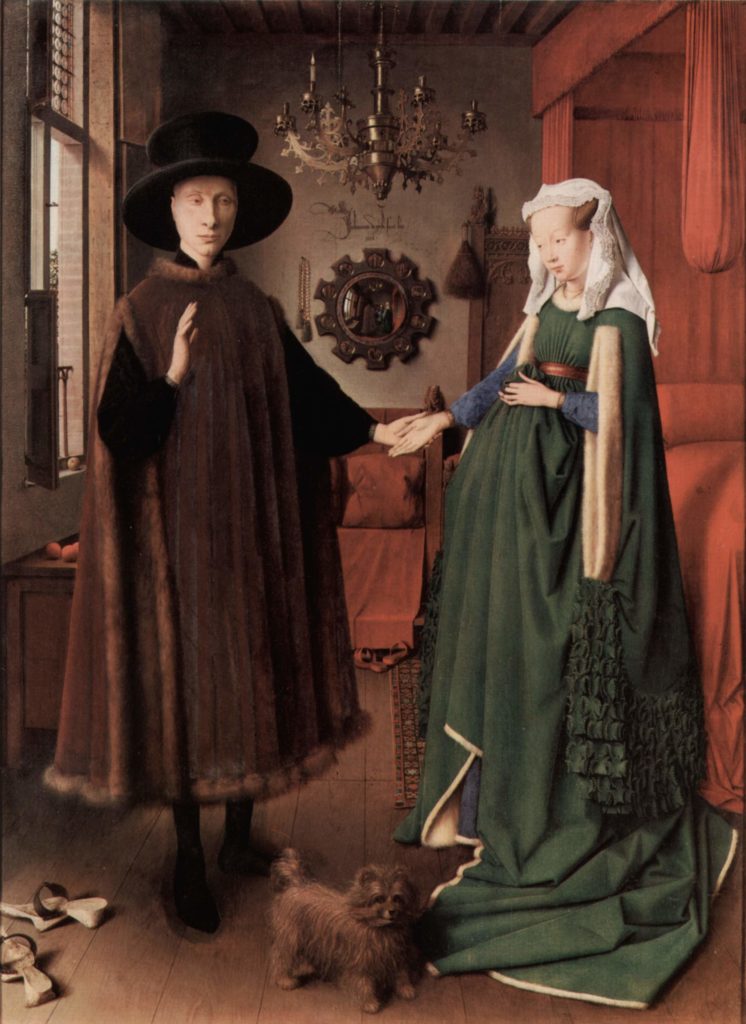
The farm workers/peasants were monogamous, but the heads of the hierarchies usually had multiple women in their households, a mix of wives and concubines. Here is a tally from the early Hebrew Scriptures:
- Abraham 1 wife 1 concubine
- Jacob 2 wives 2 concubines
- David 8 wives
- Solomon 700 wives 300 concubines
There is a touching account in 1 Samuel 1.8 of an infertile wife, Hannah, who was unable to provide her husband with a child, unlike the other wife, Peninah. ‘Therefore Hannah wept and would not eat. Her husband Elkanah said to her, ‘Hannah, why do you weep? Why do you not eat? Why is your heart sad? Am I not more to you than ten sons?’’
THE FLY IN THE OINTMENT
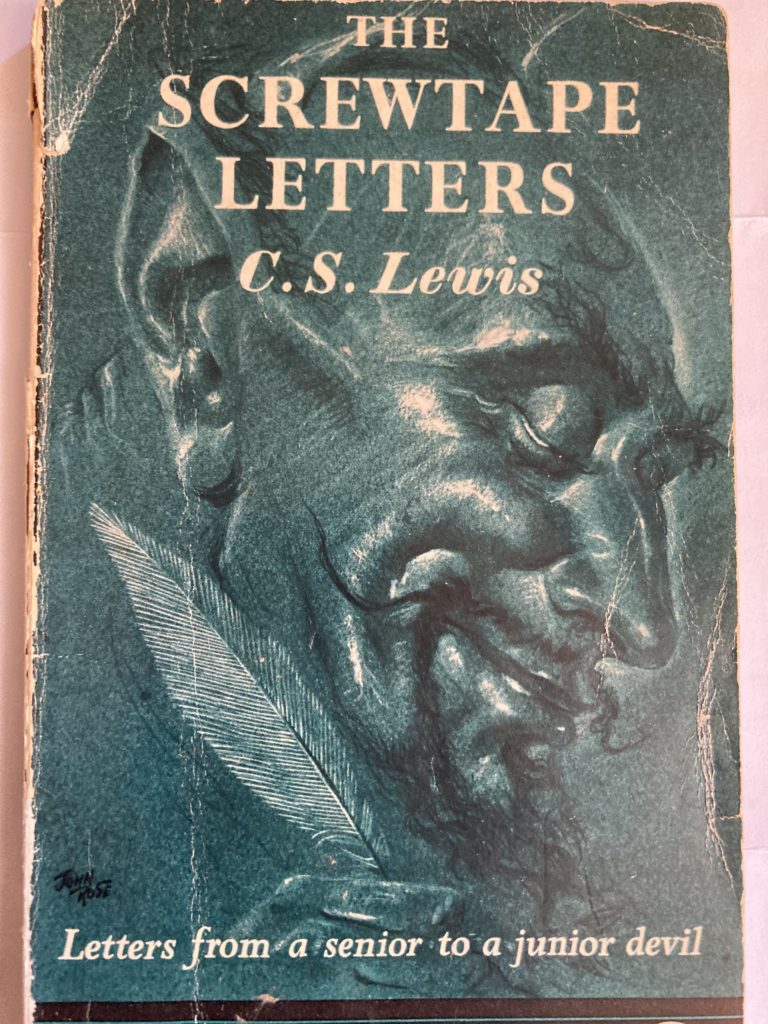
Sadly, as Alcoholics Anonymous found out, a new location, occupation or relationship does not make our past selves disappear. Wherever we go, we take them with us. And that is what happened to Homo Erectus, Home Sapiens, and you and me. The male-male aggression which marks out primate competition for mates is still a daily occurrence. The male-female sexual violence, seen particularly in chimpanzees is just as present and toxic in our own societies, and even with some approval in the Bible, as in Judges 21, or in classical literature, as in the rape of the Sabine Women. ‘Playing away’ is the stuff of films, songs and novels. And when not acted out they can still be present in fantasies. As C S Lewis says (as the senior devil Screwtape) in the Screwtape Letters, “You will find, if you look carefully into any human heart, that he is haunted by at least two imaginary women – a terrestrial and an infernal Venus. There is one type … readily mixed with charity (love)…There is another type which he desires brutally, and desires to desire brutally… (Letter XX)
SOCIETAL RESPONSES
Every society ties to keep a workable balance on the scales between good behaviour and bad behaviour. In the new agricultural society formal sexual relations became closely tied to land and property, with inheritance being through the male line. Marriage typically became a property contract, vigorously defended and when infringed, stringently punished. For example, in Islam sex outside marriage merits a flogging; adultery (sex with a married woman) both parties can suffer death by stoning.
Around 5,500 years ago warfare developed with a soldier class, and slavery of the defeated, including sexual slavery. Here is an example of Hebrew warfare under the leadership of Moses: ‘Kill every male among the little ones, and kill every woman who has known a man by sleeping with him. But all the young girls who have not known a man by sleeping with him, keep alive for yourselves.’ (Numbers 31.17-18)
As feudal societies developed, the lord of the manor asserted his dominance by the common practice of ‘droit de seigneur’, the right to be the first person to
initiate sex with the women on his estate. In ‘The Marriage of Figaro’ the count has freely given up this right – and then changes his mind when it comes to Susanna.
Today in the West behaviour such as domestic abuse, whether physical or psychological is criminal, and so (since 1991 in the UK) was marital rape.
HOMOSEXUALITY
Homosexuality has been around for millions of years. In 1911 the Antarctic explorer George Murray Levick was shocked when he observed “depraved” homosexual behaviour in Adelie penguins. His report was too scandalous to be released.
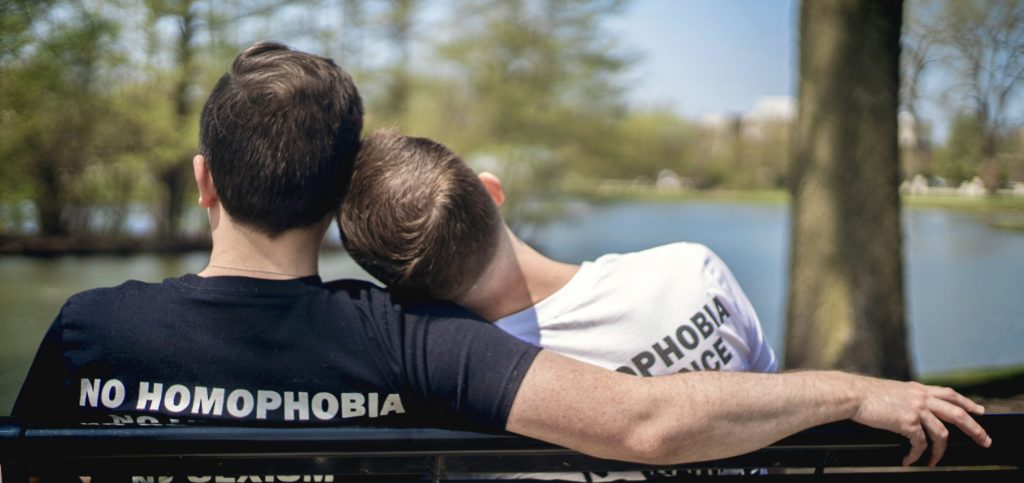
Ancient societies in Mesopotamia, Egypt, India and China seem to have had a relaxed attitude towards homosexuality. The Code of Hammurabi (c.1750 BCE) even makes provision for women to marry women. There is no evidence of homosexuality being frowned on in ancient Egypt or China. In India the Kama Sutra (c. 400 BCE) describes some homosexual practices, but around 200 BCE these became punishable by a fine. The advent of Christianity and Islam outlawed homosexuality and, in Islam, made it punishable by imprisonment or death. It is now legal in Europe, the Americas and parts of Africa and Asia; for instance, it is legal in Rwanda but illegal in Burundi.
In the 2021 census 3.2% of people in England and Wales identified themselves as lesbian, gay, bisexual or other and 262,000 as trans-gender; but this is probably an under-reporting. YouGov estimates the real figure to be 5 – 7%.
CHURCH
WHAT DOES THE BIBLE SAY?
Sex.
The Bible generally has a positive attitude to sex. Paul in particular emphasises radical equality of men and women in the bedroom: ‘The husband should give to his wife her conjugal rights, and likewise the wife to her husband. For the wife does not have authority over her own body, but the husband does; likewise the husband does not have authority over his own body, but the wife does. Do not deprive one another except perhaps by agreement for a set time, to devote yourselves to prayer, and then come together again…’ (1 Corinthians 7.3-6)
It is only later writers like St Augustine who said that sex is for begetting children; if engaged in just for pleasure, it is sinful. This is not a position taken by most marriage counsellors.
Infidelity
The Bible is quite clear: ‘Do not commit adultery’. (Exodus 20.14) – except in one version printed in 1631 where they left out the word ‘not’.
‘Studies suggest around 30–40% of unmarried relationships and 18–20% of marriages are marked by at least one incident of sexual infidelity. Men are more likely than women to have a sexual affair, regardless of whether or not they are in a married or unmarried relationship. The majority of women in a committed relationship are not going to have ANY affairs.’ (Anne Patrick, BSc, Psych on Quora)

Divorce.
Divorce (by the man) is allowed in the Torah (Deuteronomy 24.1-2). However, Jesus said, “I say to you, whoever divorces his wife, except for unchastity, and marries another commits adultery.’ (Matthew 19.9); or, (I think more authentically), ‘Whoever divorces his wife and marries another commits adultery against her; and if she divorces her husband and marries another, she commits adultery.’ (Mark 10.11-12)
In 1604 separation and remarriage in England was classified as bigamy and a felony. 1857 saw the first English law allowing divorce on the grounds of adultery. However the Church of England was firmly opposed to it and barred people who had divorced and remarried from receiving holy communion until 1978. In 2002 remarriage after divorce was finally allowed by General Synod.
Homosexuality.
The key statement for the Church is by Paul in Romans 1. 26-27: ‘For this reason (idolatry) God gave them up to degrading passions. Their women exchanged natural intercourse for unnatural, and in the same way also the men, giving up natural intercourse with women, were consumed with passion for one another. Men committed shameless acts with men and received in their own persons the due penalty for their error.’
Is this a straightforward condemnation, or does Paul have a different situation in mind?

I think Paul is here rehearsing common accusations which Jews made against the surrounding Gentile culture. He probably had in mind two things, temple prostitution and the permitted infatuation of older men with young beautiful boys, as in Plato’s Symposium. In Corinth “the Temple of Aphrodite was so rich that it owned a thousand temple-slaves, courtesans, whom both men and women had dedicated to the goddess”. (Strabo 63 BCE – 24 CE). In the Roman temple in Bulla Regia, modern-day Tunisia, a woman was buried with the inscription: “Adulteress. Prostitute. Seized, because I fled from Bulla Regia.” She may have been a woman forced into sacred prostitution as a punishment for adultery.
I doubt if Paul’s condemnation is applicable to a committed same-sex couple exercising ‘compassion, kindness, humility, meekness, and patience.’ (Colossians 3.12)
WHAT IS THE CHURCH’S ROLE?
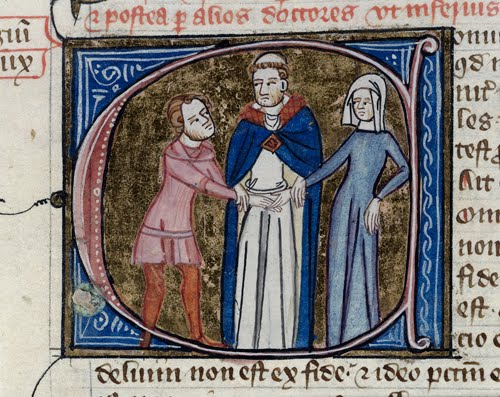
For over a thousand years the church had little to do with marriage. Early church fathers suggested that the parents and/or a priest might say a prayer of blessing over the couple, but that was an optional add-on. In 866 the newly converted Emperor of the Bulgarians wrote to Pope Nicholas 1 asking about the essence of Christian marriage. The Pope replied, “The consent of the partners its the essential element of Christian marriage.” (866). Three hundred years later Pope Alexander III (11.00-1181) said that mutual consent makes the marriage, but it is perfected and made absolutely indissoluble through consummation.
Around 1200 marriage was upgraded to a sacrament. The venue moved from a blessing held in the family home to a full service in the church sanctuary. Eventually the Roman Catholic Church taught that, unless a marriage was conducted in a catholic church, it was not a marriage. This is not the Church of England’s position, or that of other Protestant churches; wherever and however the ceremony takes place, if it is legal, it is valid.
However, since the French Revolution (1789-1793) most European and Latin American countries only recognise marriages that have been conducted in a civil ceremony. A religious ceremony is an optional extra. This could happen in the UK if at some point the Church of England was disestablished, if it lost its formal link with the state.
A CLOSING THOUGHT
Perhaps the Church should cease to try to act as any sort of policeman and just accept what their state or society legislate as marriage. That would leave it free to fulfil its primary function of prayer and pastoral care.
The Church could then proclaim unapologetically the three scriptural rules for all relationships:
- Be faithful (Exodus 20.14)
- Be respectful (1 Corinthians 7.4)
- Be kind. (Colossians 3.12-14)

0 Comments